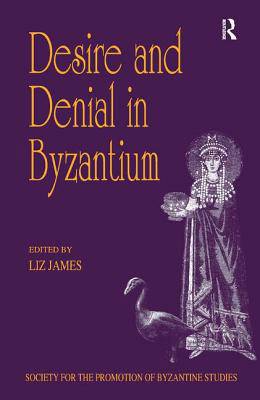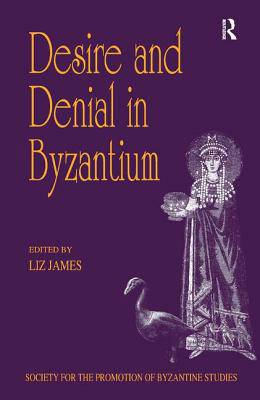
- Afhalen na 1 uur in een winkel met voorraad
- Gratis thuislevering in België vanaf € 30
- Ruim aanbod met 7 miljoen producten
- Afhalen na 1 uur in een winkel met voorraad
- Gratis thuislevering in België vanaf € 30
- Ruim aanbod met 7 miljoen producten
Zoeken
Desire and Denial in Byzantium
Papers from the 31st Spring Symposium of Byzantine Studies, Brighton, March 1997
€ 182,45
+ 364 punten
Omschrijving
The papers in this volume derive from the 31st Spring Symposium of Byzantine Studies held for the Promotion of Byzantine Studies at the University of Sussex, Brighton, in March 1997. Desire, sex, love and the erotic are not terms usually associated with Byzantium and Byzantine Studies, unlike celibacy, virginity and asceticism, which more readily spring to mind. In order to examine whether the balance between these two extremes needed redressing, desire and denial was adopted as the theme for this symposium. The papers in this volume, by a group of international scholars, explore the many different aspects of Byzantine perceptions towards their own humanity and the frailties of that humanity. Using evidence from archaeology, art history and literary texts, ranging from sermons to legal documents, these chapters reveal writings about love, both secular and religious; images of sexuality and sensuality; the law; and Byzantine attitudes to bodies and the senses. What the symposium illustrated is that the question of desires in the Byzantine world is significant, and that such desires can offer insights into Byzantine conceptions of their own world.
Specificaties
Betrokkenen
- Uitgeverij:
Inhoud
- Aantal bladzijden:
- 232
- Taal:
- Engels
- Reeks:
Eigenschappen
- Productcode (EAN):
- 9780860787884
- Verschijningsdatum:
- 28/05/1999
- Uitvoering:
- Hardcover
- Formaat:
- Genaaid
- Afmetingen:
- 156 mm x 233 mm
- Gewicht:
- 497 g

Alleen bij Standaard Boekhandel
+ 364 punten op je klantenkaart van Standaard Boekhandel
Beoordelingen
We publiceren alleen reviews die voldoen aan de voorwaarden voor reviews. Bekijk onze voorwaarden voor reviews.










